
United Nations Security Council resolution 1062, adopted unanimously on 28 June 1996, after recalling all resolutions on Cyprus, particularly resolutions 186 (1964), 939 (1994) and 1032 (1995), the Council expressed concern at the lack of progress in the political dispute in Cyprus and extended the mandate of the United Nations Peacekeeping Force in Cyprus (UNFICYP) until 31 December 1996.

United Nations Security Council resolution 1178, adopted unanimously on 29 June 1998, after reaffirming all past resolutions on the situation in Cyprus, the Council extended the mandate of the United Nations Peacekeeping Force in Cyprus (UNFICYP) for a further six months until 31 December 1998.
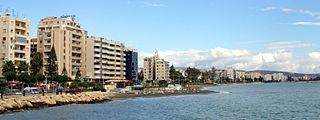
United Nations Security Council resolution 1251, adopted unanimously on 29 June 1999, after reaffirming all past resolutions on the situation in Cyprus, including resolutions 1217 (1998) and 1218 (1998), the Council extended the mandate of the United Nations Peacekeeping Force in Cyprus (UNFICYP) for a further six months until 15 December 1999.
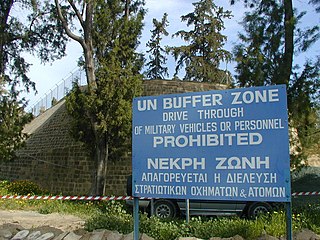
United Nations Security Council resolution 1303, adopted unanimously on 14 June 2000, after reaffirming all resolutions on the situation in Cyprus, including resolutions 1251 (1999) and 1283 (1999), the Council extended the mandate of the United Nations Peacekeeping Force in Cyprus (UNFICYP) for a further six months until 15 December 2000. The resolution also noted that the Government of Cyprus had agreed that, given the prevailing conditions on the island, it was necessary for UNFICYP to remain beyond 15 June 2000.

United Nations Security Council resolution 1331, adopted unanimously on 13 December 2000, after reaffirming all resolutions on the situation in Cyprus, including Resolution 1251 (1999), the Council extended the mandate of the United Nations Peacekeeping Force in Cyprus (UNFICYP) for a further six months until 15 June 2001.

United Nations Security Council Resolution 1930, adopted on June 15, 2010, after reaffirming all resolutions on the situation in Cyprus, particularly Resolution 1251 (1999), the Council extended the mandate of the United Nations Peacekeeping Force in Cyprus (UNFICYP) for a further six months until December 15, 2010 while negotiations towards a settlement of the dispute on the island were underway.
United Nations Security Council resolution 1354, adopted unanimously on 15 June 2001, after reaffirming all resolutions on the situation in Cyprus, including Resolution 1251 (1999), the Council extended the mandate of the United Nations Peacekeeping Force in Cyprus (UNFICYP) for a further six months until 15 December 2001.
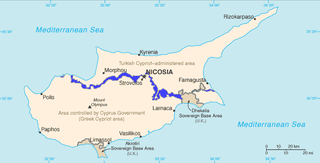
United Nations Security Council resolution 1384, adopted unanimously on 14 December 2001, after reaffirming all resolutions on the situation in Cyprus, including Resolution 1251 (1999), the council renewed the mandate of the United Nations Peacekeeping Force in Cyprus (UNFICYP) for a further six months until 15 June 2002.

United Nations Security Council resolution 1416, adopted unanimously on 13 June 2002 after reaffirming all resolutions on the situation in Cyprus, including Resolution 1251 (1999), the council extended the mandate of the United Nations Peacekeeping Force in Cyprus (UNFICYP) for a further six months until 15 December 2002.
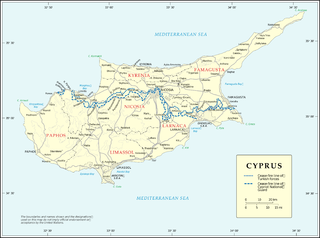
United Nations Security Council resolution 1442, adopted unanimously on 25 November 2002, after reaffirming all resolutions on the situation in Cyprus, particularly Resolution 1251 (1999), the council extended the mandate of the United Nations Peacekeeping Force in Cyprus (UNFICYP) for an additional six months until 15 June 2003.

United Nations Security Council resolution 1486, adopted unanimously on 11 June 2003, after reaffirming all resolutions on the situation in Cyprus, particularly Resolution 1251 (1999), the council extended the mandate of the United Nations Peacekeeping Force in Cyprus (UNFICYP) for an additional six months until 15 December 2003.

The United Nations Security Council resolution 1517 was adopted unanimously on 24 November 2003, after reaffirming all resolutions on the situation in Cyprus, particularly Resolution 1251 (1999), the council extended the mandate of the United Nations Peacekeeping Force in Cyprus (UNFICYP) for an additional six months until 15 June 2004.

Under United Nations Security Council resolution 1548, adopted unanimously on 11 June 2004, after reaffirming all resolutions on the situation in Cyprus, particularly Resolution 1251 (1999), the council extended the mandate of the United Nations Peacekeeping Force in Cyprus (UNFICYP) for an additional six months until 15 December 2004.
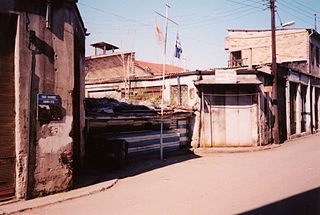
United Nations Security Council resolution 1568, adopted unanimously on 22 October 2004, after reaffirming all resolutions on the situation in Cyprus, particularly Resolution 1251 (1999), the council extended the mandate of the United Nations Peacekeeping Force in Cyprus (UNFICYP) for an additional period until 15 June 2005.

United Nations Security Council Resolution 1953, adopted on December 14, 2010, after reaffirming all resolutions on the situation in Cyprus, particularly Resolution 1251 (1999), the Council extended the mandate of the United Nations Peacekeeping Force in Cyprus (UNFICYP) for a further six months until June 15, 2011, calling for Greek and Turkish Cypriot leaders to develop a plan for overcoming differences before the Secretary-General visit in January 2011.
United Nations Security Council resolution 1604, adopted unanimously on 15 June 2005, after reaffirming all resolutions on the situation in Cyprus, particularly Resolution 1251 (1999), the Council extended the mandate of the United Nations Peacekeeping Force in Cyprus (UNFICYP) for an additional period until 15 December 2005.
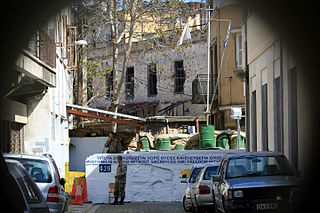
United Nations Security Council Resolution 1642, adopted unanimously on 14 December 2005, after reaffirming all resolutions on the situation in Cyprus, particularly Resolution 1251 (1999), the council extended the mandate of the United Nations Peacekeeping Force in Cyprus (UNFICYP) for an additional period until 15 June 2006.
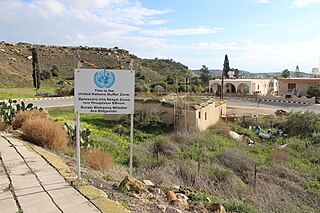
United Nations Security Council Resolution 1986, adopted unanimously on June 13, 2011, after reaffirming all resolutions on the situation in Cyprus, particularly resolutions 1251 (1999) and 1953 (2010), the Council extended the mandate of the United Nations Peacekeeping Force in Cyprus (UNFICYP) for a further six months until December 15, 2011, calling for an intensification of negotiations between the Greek and Turkish Cypriot leaders.

United Nations Security Council Resolution 1687, adopted unanimously on June 15, 2006, after reaffirming all resolutions on the situation in Cyprus, particularly Resolution 1251 (1999), the Council extended the mandate of the United Nations Peacekeeping Force in Cyprus (UNFICYP) for six months until December 15, 2006.

United Nations Security Council Resolution 1728, adopted unanimously on December 15, 2006, after reaffirming all resolutions on the situation in Cyprus, particularly Resolution 1251 (1999), the Council extended the mandate of the United Nations Peacekeeping Force in Cyprus (UNFICYP) for six months until June 15, 2007.















